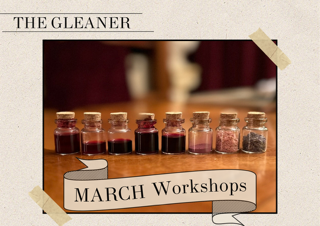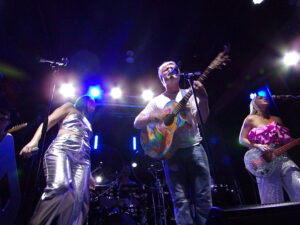
Welcoming The New Printmakers Space
By Sophia R. Westfall
The Mid-Atlantic Regional Center for the Humanities, otherwise known as MARCH, has just introduced its new printmakers space this fall. Located at 325 Cooper Street in Camden, the center offers space for research as well as community collaboration. MARCH often collaborates with the Writers House as well as visiting authors. Just last year, MARCH announced their newest initiative: environmental humanities, and they are now dedicated not only to preserving the history of Camden, but to using Cooper Street as an educational model for environmentalism, history, and, newly, printmaking.
The printmakers space is located in the MARCH building and has adopted the name Proof. Aside from student-led research about the history of printmaking, Proof will be offering a series of workshops for students and faculty to attend. These workshops will offer the history of printmaking, with the incredible opportunity to experiment with those various historical methods. However, as part of MARCH’s new initiative, each workshop will be taught through an environmental and regional lens. Many of the materials will be sourced in the surrounding Camden region, while some of the printmaking methods will date back as far as the conception of civilization.
Proof highlighted one of their upcoming workshops this past September at the Arts and Musical Festival. They offered attendants of the festival the opportunity to make their own anthotype. An anthotype is a negative print using photo-sensitive light and other materials like plants to make the print of. While there are various methods to produce an anthotype, Proof created photosensitive paper by mixing turmeric powder and rubbing alcohol together. This mixture creates a UV sensitive bleach. Once the paper is treated with the mixture, the sun causes a reaction that makes the coloration of the paper fade. By putting objects, or in Proof’s case, stickers, on that paper before being exposed to the sun, everything beneath the object remains dark and the rest of the paper fades light yellow. This creates a negative print visually similar to an x-ray.
This is one example of the many unique and environmentally friendly projects Proof will be offering at their workshops this semester. Other’s include traditional Roman beeswax printing, making paper from recycled Rutgers paper, or even growing leather out of kombucha SCOBY and orange peels. This upcoming October they will be offering their first official workshop where attendants will make their own fountain ink out of wild blueberries and will get the opportunity to practice their quill penmanship too. While attendants are not expected to come to every workshop, it is encouraged. Each workshop will build upon the one prior, until each attendant produces a complete, biodegradable notebook by the end of the semester.
Interested in making paper, or learning to bind a book, or grow your own vegan leather? Join MARCH’s newsletter and be the first to sign up for Proof’s newest workshops.

